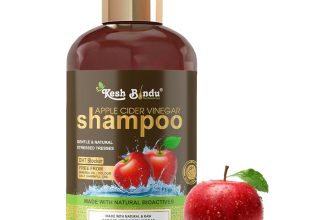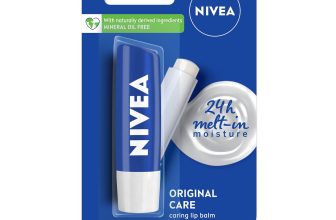
As the New Year dawns, promises to improve our health, lose weight, and adopt better eating habits often dominate our resolutions. While these goals are commendable, many of us fall into the trap of fad diets that promise quick results but rarely deliver long-term benefits. In 2025, it’s time to embrace sustainable nutrition habits—an approach focused on nourishing the body, promoting energy, and cultivating a guilt-free relationship with food. This blog explores practical strategies and actionable tips for building sustainable nutrition habits that last a lifetime.
Understanding the Problem with Fad Diets
Fad diets, whether it’s eliminating entire food groups, going keto, or adopting intermittent fasting, are enticing due to their promise of rapid results. However, research shows that most people regain the weight they lose within a few months or years. Here are some reasons why fad diets fail:
- Restrictive Regulations: Fad diets often cut out essential nutrients, leading to feelings of deprivation.
- Unrealistic Expectations: They promise fast weight loss but are not designed for long-term sustainability.
- Mental Health Impact: The cycle of dieting and regaining weight can lead to shame, stress, and an unhealthy relationship with food.
Keywords: fad diets, restrictive eating, weight regain, unsustainable nutrition, mental health impact of dieting
The Case for Sustainable Nutrition
Sustainable nutrition focuses on creating long-term, health-promoting eating habits that prioritize well-being over perfection. It’s about enjoying meals without guilt, maintaining energy, and making nutrition a positive aspect of your life rather than a chore.
Benefits of Sustainable Nutrition:
- Promotes balanced energy levels.
- Improves mental and physical health.
- Encourages a guilt-free and enjoyable relationship with food.
Keywords: sustainable nutrition, guilt-free eating, long-term wellness, balanced energy, positive relationship with food
1. Prioritize Nourishment Over Restriction
Diets often emphasize what you can’t eat, which can feel restrictive and discouraging. Instead, focus on nutrient-dense foods that fuel your body and keep you feeling full and energized.

Tips to Prioritize Nourishment:
- Include a variety of whole grains, lean proteins, healthy fats, and colorful fruits and vegetables in your meals.
- Replace processed snacks with natural alternatives like nuts, seeds, or fresh fruit.
- Experiment with new recipes that make healthy eating exciting.
Examples of Nutrient-Dense Foods:
- Whole grains: Brown rice, quinoa, oats.
- Lean proteins: Chicken, fish, tofu, lentils.
- Healthy fats: Avocado, olive oil, nuts.
- Vibrant fruits and veggies: Spinach, berries, carrots, sweet potatoes.
Keywords: nutrient-dense foods, whole grains, healthy fats, lean proteins, colorful fruits and vegetables
2. Balance Over Perfection
Healthy eating isn’t about being perfect. It’s about balance and consistency. The 80/20 rule is a practical approach: aim to eat nutrient-rich foods 80% of the time and allow room for indulgences in the remaining 20%.
Why Balance Matters:
- Encourages sustainability by avoiding burnout.
- Allows you to enjoy your favorite treats without guilt.
- Reduces the pressure of adhering to unrealistic standards.
Practical Applications of the 80/20 Rule:
- Enjoy a slice of cake at a birthday party without worrying about “falling off track.”
- Pair a nutrient-packed salad with your favorite pasta dish.
- Satisfy cravings in moderation rather than eliminating them entirely.
Keywords: balanced diet, 80/20 rule, nutrition consistency, healthy indulgence, realistic eating goals
3. Practice Mindful Eating
Mindful eating transforms the way you experience food by encouraging you to focus on the present moment. It’s not about what you eat but how you eat.

How to Eat Mindfully:
- Avoid distractions such as TV or smartphones during meals.
- Savor every bite, paying attention to flavors, textures, and aromas.
- Recognize hunger and fullness cues to avoid overeating.
Benefits of Mindful Eating:
- Builds a healthier relationship with food.
- Helps prevent emotional or stress-induced eating.
- Encourages satisfaction with smaller portions.
Keywords: mindful eating, savoring food, hunger cues, emotional eating, stress-free meals
4. Set Realistic Goals
Extreme objectives like losing a significant amount of weight quickly are not only daunting but also unsustainable. Instead, focus on small, achievable goals that can build up over time.
Examples of Realistic Nutrition Goals:
- Eat a serving of vegetables with every meal.
- Drink an additional glass of water daily.
- Replace sugary beverages with healthier options like herbal tea or infused water.
How to Track Progress:
- Use a journal to document your daily eating habits.
- Celebrate small milestones, such as incorporating a new healthy recipe into your routine.
- Adjust goals as needed to fit your lifestyle.
Keywords: realistic nutrition goals, small changes, tracking progress, sustainable health habits, healthy milestones
5. Create a Routine That Works for You
Nutrition is not one-size-fits-all. Your eating habits should align with your lifestyle and preferences to be effective.

How to Build a Personalized Routine:
- Meal prep on weekends if weekdays are busy.
- Incorporate smaller, more frequent meals if it suits your energy levels.
- Experiment with intermittent fasting if it aligns with your lifestyle and health goals.
Sample Daily Nutrition Routine:
- Breakfast: Overnight oats with chia seeds and fresh berries.
- Lunch: Grilled chicken salad with olive oil dressing.
- Snack: A handful of almonds or a fruit smoothie.
- Dinner: Quinoa with roasted vegetables and a lean protein.
Keywords: personalized nutrition routine, meal prep, healthy daily habits, effective eating schedule, sample meal plan
6. Listen to Your Body
Your body is your best guide when it comes to nutrition. Learning to interpret its signals can help you distinguish between genuine hunger and emotional cravings.
Ways to Listen to Your Body:
- Pay attention to how different foods make you feel.
- Recognize patterns that lead to overeating or skipping meals.
- Practice intuitive eating by honoring hunger and fullness cues.
Benefits of Listening to Your Body:
- Promotes a stronger connection to your health.
- Reduces dependency on external diets or meal plans.
- Encourages a flexible, stress-free approach to eating.
Keywords: intuitive eating, body signals, hunger and fullness cues, emotional cravings, flexible eating habits
The Journey to Sustainable Nutrition
Sustainable nutrition is not a destination but a journey. Every small step—whether it’s adding an extra vegetable to your meal or practicing mindful eating—contributes to long-term wellness. By breaking free from the diet cycle and focusing on balance, nourishment, and self-awareness, you can cultivate habits that last a lifetime.
As you embrace the New Year, remember that health is a continuous process. Celebrate your progress, forgive setbacks, and stay committed to a lifestyle that prioritizes your well-being.
Keywords: sustainable eating journey, long-term wellness, small steps to health, breaking the diet cycle, health commitment
Conclusion
In 2025, let’s move beyond the quick fixes and fleeting promises of fad diets. Embrace sustainable nutrition habits that nourish your body, fuel your energy, and promote a positive relationship with food. With mindful eating, balanced goals, and personalized routines, you can transform your health and well-being for the better. Remember, maintaining good health is a journey—not a destination—and every small step counts.
Keywords: New Year nutrition tips, sustainable eating, healthy habits 2025, nourishment over dieting, long-term health practices








[…] 2025 Nutrition Goals: Embrace Sustainable Habits for Lifelong Health […]